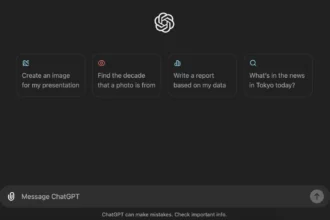ChatGPT and AI in general are sweeping the world. Never before have we seen a service gain so many hundreds of millions of users so quickly. Not only does ChatGPT have a tremendous user base, but its parent company, OpenAI, also has an API that is fueling thousands of new SaaS products, raking in billions of dollars annually. All of this has happened in less than a year. With billions of pieces of AI content, there was bound to be a check in the space.
AI detectors naturally sprang up very quickly after ChatGPT’s rapid rise to prominence. The first detector I saw was GPTZero, but many have come into existence afterward. Detectors like Originality, ZeroGPT, Winston AI, and Copyleaks are currently flourishing.
Traditional services like Turnitin, one of the largest academic software companies in the world, even introduced its own AI Detector in 2023. These AI detection services scan content to see if it was generated by AI or not.
We have been there, seeking solutions to bypass AI detectors like GPT Zero, Turnitin AI detection, etc. Many students have also been doing this for some time now. In fact, bypassing GPT AI detectors is quite challenging for two reasons:
- The AI detectors available on the market do not provide precise/correct results.
- Patterns in AI models vary significantly from one LLM to another, yet when dealing with a long text, or a very short one, detecting AI patterns is more feasible in advanced detection systems.
Having said that, it’s nowadays a roulette game. But anyone who has been using ChatGPT for a while (or even for hours) can easily recognize certain patterns with the naked eye. Words like “in conclusion,” “Excitingly,” “Amazing,” “Remarkable,” “Revolutionize the Way,” “Transformative Power,” “Groundbreaking Advancement,” and the list goes on.
As of today, there are three basic methods used to bypass AI detection that you need to know if you want to experiment with it or maybe detect AI in a specific paper.
Table of Contents
ToggleBypassing AI detector by using the Unicode Character Look-Alikes Method
This method is mainly used to bypass automated detectors (not human). In practice, this method consists of replacing some characters with equivalent/similar Unicode characters that are not or are less used by AI like ChatGPT, Gemini, Llama, etc.
Here is the base list that can help you:
| Original Letter | Look-Alike(s) |
|---|---|
| a | а ạ ą ä à á ą |
| c | с ƈ ċ |
| d | ԁ ɗ |
| e | е ẹ ė é è |
| g | ġ |
| h | һ |
| i | і í ï |
| j | ј ʝ |
| k | κ |
| l | ӏ ḷ |
| n | ո |
| o | о ο օ ȯ ọ ỏ ơ ó ò ö |
| p | р |
| q | զ |
| s | ʂ |
| u | υ ս ü ú ù |
| v | ν ѵ |
| x | х ҳ |
| y | у ý |
| z | ʐ ż |
There is a more exhaustive list published on GitHub, check it here and here.
AI detection bypass using the AI-to-human method
Don’t be fooled with the clickbait name. But if you know what you are doing, this method can work better than the first one because the AI-to-human method can bypass both human and automated checks.
Getting to the point, this method is based on prompting, asking it to write in the writing style of a specific human author, which sometimes works.
Write in [Name] style of writing.I asked it to write several paragraphs of my prompt in the style of a real author and the AI detector was fooled, saying “Your Text is Human-written” (got 0.0% GPT).

The key here is to find the best person that works (not Elon Musk, please). Then fine-tuning with a few shots with text from the person, and everything is okay.
But please, stay away from prompts like “Make the text undetectable/human-like” because they do not work at all.
Trending >> TOP : 41 Jobs that AI Cannot replace (Safe from AI)
Paraphrase Content By Hand
This may seem obvious to you, but one of the easiest things you can do to make AI content undetectable is to paraphrase the content you generate with ChatGPT or similar services. AI detectors are very good at picking up content directly made by ChatGPT. Services like GPTZero look for perplexity and burstiness in the text.
Here’s how their CEO describes what they are looking for:
“For a human essay, it will vary all over the place. It will go up and down, there’ll be sudden bursts and spikes, versus for a machine essay, it will be pretty boring. It will have a constant baseline.”
Essentially, what they are saying is: AI essays are super consistent and boring compared to human essays, which can be all over the place. This makes sense; we are all different from each other, and we have varying degrees of writing ability.
However, these machines all share a similar origin and learning set. Therefore, AI-produced content will sound very similar. The way I like to paraphrase this content to bypass AI detectors is to look at the paragraph, then pull it away from my field of view.
I do not like to rewrite by directly looking at the content. Merely changing the words is not enough; you need that human entropy only you can add. You are only able to do that by trying to recollect and reword the content from your memory.
Trending now >> ChatGPT: The Ultimate Guide to DAN Jailbreak Prompts (DAN 6.0, STAN, DUDE, and the Mongo Tom)
Bonus: Most Common Words Used by AI
As I said, there is a pattern in AI content, but there are words that are used a lot by AI and LLMs. These words are simply recognizable by AI detectors and human readers. So here is a list that marks as a red-flag.
- Advancement in the realm
- Aims to bridge
- Aims to democratize
- Aims to foster innovation and collaboration
- Becomes increasingly evident
- Behind the Veil
- Breaking barriers
- Breakthrough has the potential to revolutionize the way
- Bringing us
- Bringing us closer to a future
- By combining the capabilities
- By harnessing the power
- Capturing the attention
- Continue to advance
- Continue to make significant strides
- Continue to push the boundaries
- Continues to progress rapidly
- Crucial to be mindful
- Crucially
- Cutting-edge
- Drive the next big
- Encompasses a wide range of real-life scenarios
- Enhancement further enhances
- Ensures that even
- Essential to understand the nuances
- Excitement
- Exciting opportunities
- Exciting possibilities
- Exciting times lie ahead as we unlock the potential of
- Excitingly
- Expanded its capabilities
- Expect to witness transformative breakthroughs
- Expect to witness transformative breakthroughs in their capabilities
- Exploration of various potential answers
- Explore the fascinating world
- Exploring new frontiers
- Exploring this avenue
- Foster the development
- Future might see us placing
- Groundbreaking way
- Groundbreaking advancement
- Groundbreaking study
- Groundbreaking technology
- Have come a long way in recent years
- Hold promise
- Implications are profound
- Improved efficiency in countless ways
- In conclusion
- In the fast-paced world
- Innovative service
- Intrinsic differences
- It discovered an intriguing approach
- It remains to be seen
- It serves as a stepping stone towards the realization
- Latest breakthrough signifies
- Latest offering
- Let’s delve into the exciting details
- Main message to take away
- Make informed decisions
- Mark a significant step forward
- Mind-boggling figure
- More robust evaluation
- Navigate the landscape
- Notably
- One step closer
- One thing is clear
- Only time will tell
- Opens up exciting possibilities
- Paving the way for enhanced performance
- Possibilities are endless
- Potentially revolutionizing the way
- Push the boundaries
- Raise fairness concerns
- Raise intriguing questions
- Rapid pace of development
- Rapidly developing
- Redefine the future
- Remarkable abilities
- Remarkable breakthrough
- Remarkable proficiency
- Remarkable success
- Remarkable tool
- Remarkably
- Renowned
- Represent a major milestone
- Represents a significant milestone in the field
- Revolutionize the way
- Revolutionizing the way
- Risks of drawing unsupported conclusions
- Seeking trustworthiness
- Significant step forward
- Significant strides
- The necessity of clear understanding
- There is still room for improvement
- Transformative power
- Truly exciting
- Uncover hidden trends
- Understanding of the capabilities
- Unleashing the potential
- Unlocking the power
Conclusion
Did you know? GPT Zero detects the Constitution of the United States of America as entirely AI-written. Either way, it looks like GPT-5 generated text can’t be detected yet, right?
Anyone who spent at least two hours with ChatGPT can spot AI content it generates. It has its own signature style. Also, paraphrasing the text using an external service like Quillbot is not a good idea, because the output text is not readable and doesn’t look too human, as I tried.
Bypassing an AI detector is a challenging problem, but creativity, knowledge, and research pay off. Thanks for passing on this blog and share with me if you have found a new method not mentioned.





